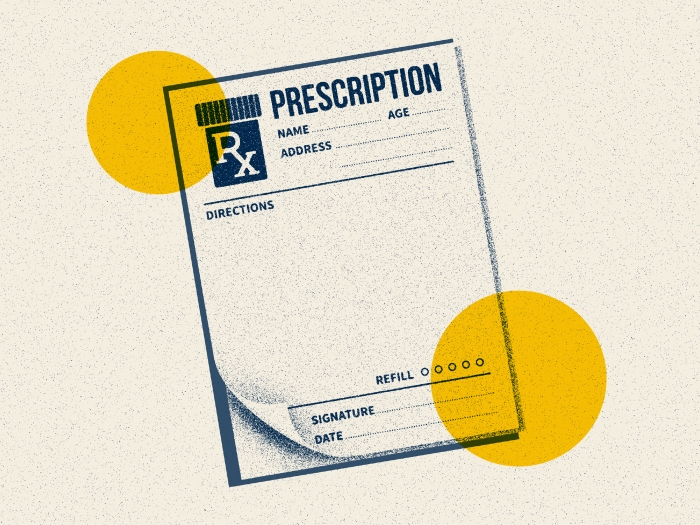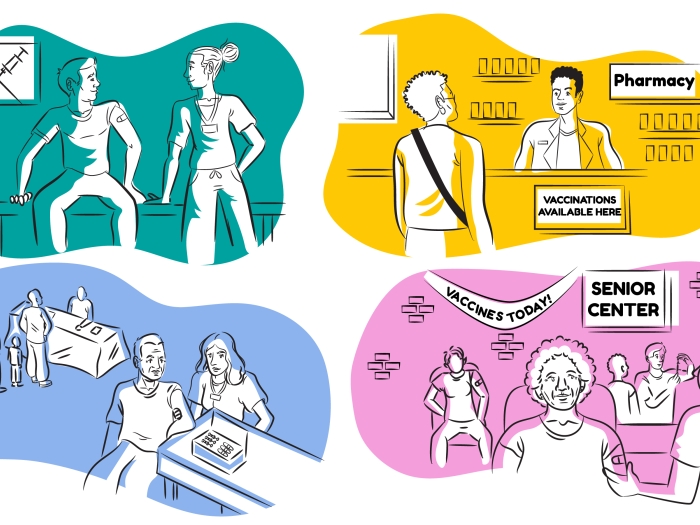Chronic pain associated with the condition leads some to increase use of opioids
5:00 AM
Author |

Evidence shows that fibromyalgia, and the chronic pain associated with it, could worsen an opioid use disorder. Researchers at University of Michigan and the Ohio State University and report their findings in PAIN, the official journal of the International Association for the Study of Pain.
Scientists have long suspected a connection between opioid use disorder and chronic pain. Many people first use opioids to treat pain. Chronic pain has been tied to worsening of opioid use disorder and even relapse among those in recovery from opioid addiction. However, researchers didn’t know if all pain has the same effect on this disorder, or if certain pain diagnoses might have a much larger impact. Different impacts might lead to more targeted treatments for people with pain and opioid use disorder.
“We’ve always wondered if people with chronic pain who became addicted to opioids might require a different approach than individuals who become addicted that do not have pain,” said senior author Daniel J. Clauw, M.D., director of the Chronic Pain and Fatigue Research Center at the University of Michigan.
Symptoms of fibromyalgia include widespread body pain, extreme tiredness and difficulty thinking and sleeping. This condition is thought to involve unusually strong pain signals in the brain.
“Many of the brain pathways and chemicals believed to be involved in fibromyalgia are also involved in opioid addiction. This overlap made us suspect fibromyalgia might worsen opioid use disorder. It’s sort of a double hit hypothesis,” said O. Trent Hall, M.D., lead author and an addiction medicine physician in Ohio State’s Department of Psychiatry and Behavioral Health.
The research team surveyed 125 people living with pain and this disorder, 39 (31%) of whom met criteria for fibromyalgia. Although all participants had pain and used opioids, those with fibromyalgia were much more likely to say pain had worsened their addiction.
Specifically, those with fibromyalgia more often agreed that pain caused them to continue and increase their opioid use, and that they put off seeking help out of fear their pain would be unbearable if they stopped using opioids.
“These are serious findings. Worries about pain may cause people with fibromyalgia and OUD to delay getting addiction treatment. In our current overdose crisis, every day a person puts off OUD treatment might be the last day of their life,” said Julie Teater, M.D., study co-author and medical director of addiction medicine at Ohio State Wexner Medical Center.
Researchers also found fibromyalgia was associated with greater odds of fearing that pain might cause relapse in the future.
“There are ways we can help people living with fibromyalgia. It’s possible that combining lessons learned from years of studying fibromyalgia might one day inform new treatments for chronic pain and opioid use disorder. More research is needed. This is just the beginning,” said Clauw.
Additional authors include Parker Entrup; Megan Deaner; Craig Bryan; Steven E Harte; Chelsea M Kaplan; and Kihn Luan Phan.
Funding/disclosures: Hall gave expert opinion about the opioid crisis to Lumanity and Emergent BioSolutions. Clauw has testified in state lawsuits against opioid manufacturers for their role in the opioid overdose crisis. The remaining authors report no relevant conflicts of interest.
The Care Innovation and Community Improvement Plan, a program of the Ohio Department of Medicaid, provided funding.
Paper cited: “Fibromyalgia predicts increased odds of pain-related addiction exacerbation among individuals with pain and opioid use disorder,” PAIN. DOI: 10.1097/j.pain.0000000000002878

Explore a variety of health care news & stories by visiting the Health Lab home page for more articles.

Department of Communication at Michigan Medicine
Want top health & research news weekly? Sign up for Health Lab’s newsletters today!





